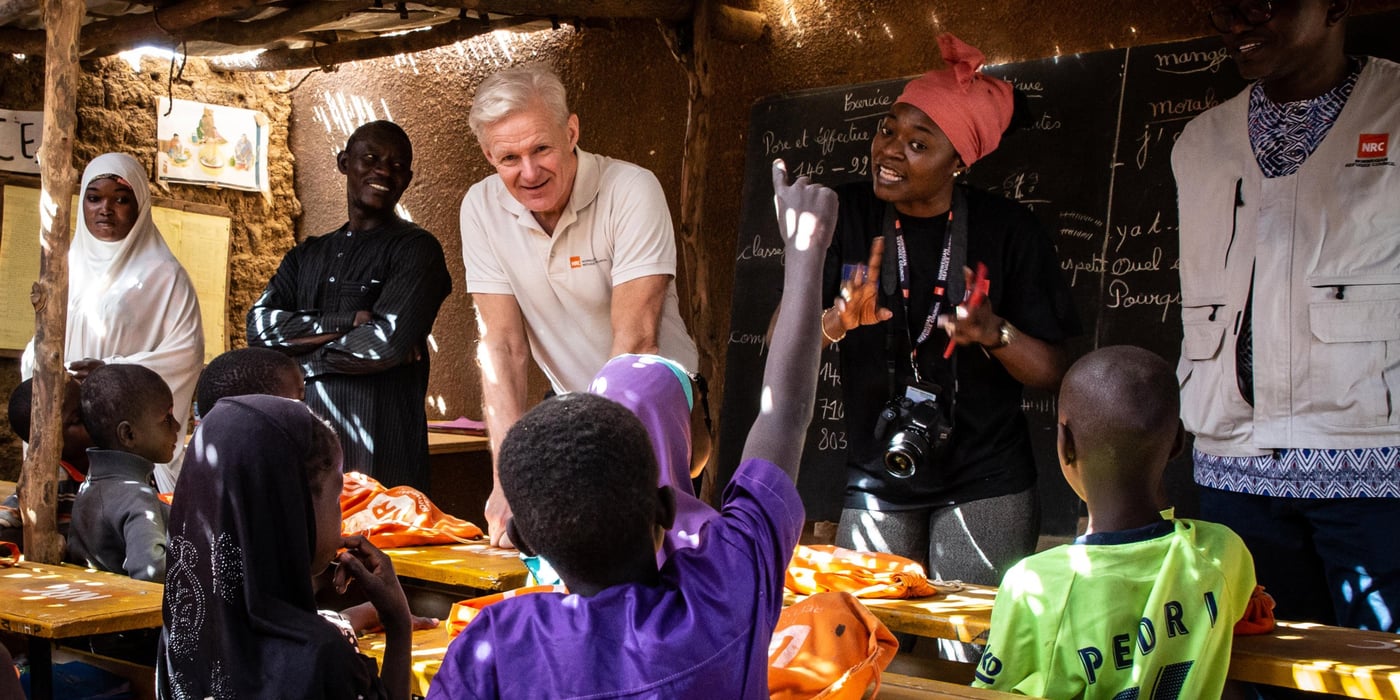
Climate change is one of the greatest challenges of our time, and the Sahel region of Africa is particularly affected due to heavy reliance on rain-fed agriculture. In Niger, more than 80 % of the population depends on agriculture for their livelihoods. People risk severe food insecurity due to frequent droughts and floods. Unpredictable rainfall patterns and longer dry seasons affects food production, often leading to food insecurity and malnutrition.
‘’Accurate climate information save lives. With the right information at the right time, people and communities can avoid severe risks of food shortage,’’ NORCAP expert Bintou Diallo explains. She is currently deployed to Niger, where she works as a climate risk analyst for the World Food Programme (WFP). Her deployment is funded by the Norwegian Ministry of Foreign Affairs.
‘’Coming from the Sahel region myself, I experienced floods and droughts from a very young age. I saw the severe effects of climate change and wanted to do something about it,’’ Diallo says.
Innovative solutions for affected populations
As a NORCAP expert, Diallo identifies and assesses climate risks, capacity to handle these, and the needs of vulnerable populations. There is a great need for climate information, and Diallo has contributed to studies showing that radio and phones are the main providers of weather information.
‘’To ensure that climate information reaches affected populations, we train radio stations in how to communicate lifesaving weather information. We also provide telephones for local early warning committees, setting it up so that they can make free calls to climate information providers’’ Diallo says.

The Climate Theatre Group
The project uses a number of innovative approaches to engage local communities. This includes a one-of–a-kind climate theatre group that acts out scenarios from a village, to show real life challenges people face related to climate change, such as failed crops. Through music and role-play, the theatre group provides suggestions on how to better adapt and prepare for climate change, for example using better irrigation and hydration techniques.
Taking action to save lives
'It is vital to improve coordination amongst those working in climate services, to be more efficient and reach more communities. Sharing information with communities without providing trainings and teaching them how to actually adapt solutions will not have an impact. Climate services needs to be integrated in a number of activities,'' Diallo says.
Our partners on the ground says the support from NORCAP have been essential.
''The support of NORCAP to the Niger Met Office has helped a lot in terms of coordination and collaboration with other ministries and sectors that are affected by climate change,'' says Labo Moussa, director of National Meteorology Directorate of Niger.


